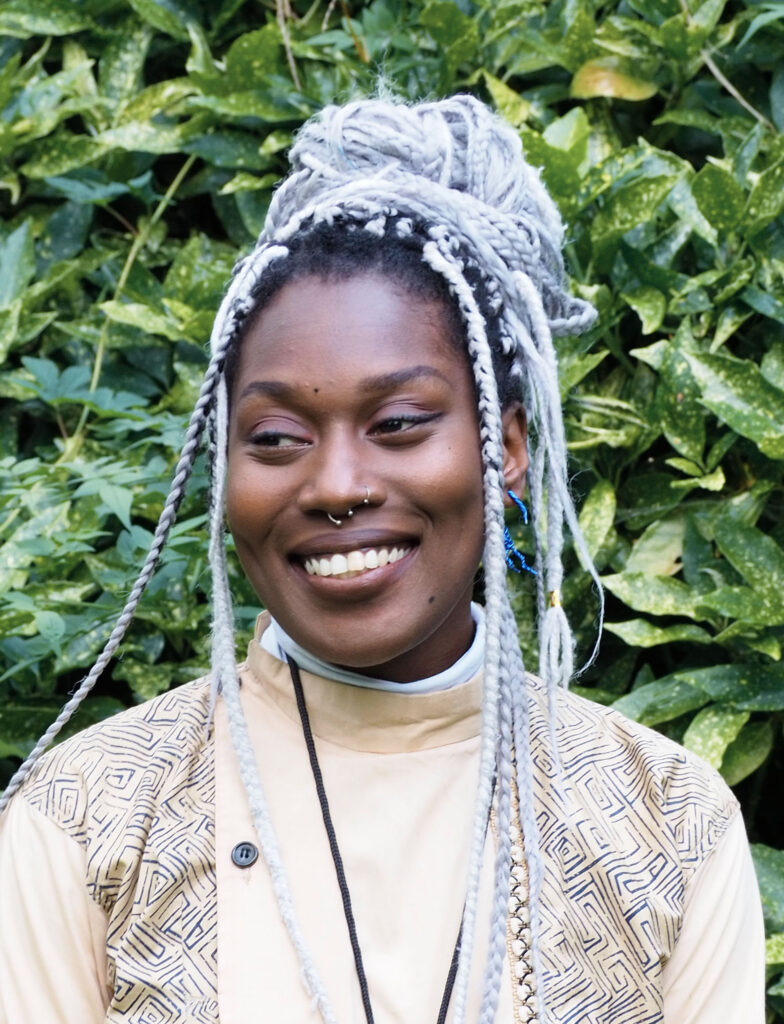‘In Retrospect: Art School, a Journal and a Pandemic’ | Dar Es Salaam, Tanzania / Oxford, UK
Tanzanian artist Valerie Asiimwe Amani who recently graduated from The Ruskin School of Art at the University of Oxford, England, reflects on her time as a Master of Fine Arts student there during the pandemic. Here she shares thoughts and diary entries along with her beautiful, haunting and evocative dissertation project.
It's the beginning of the year again and yes, we are still in a global pandemic. There is something about the start of the year that urges you to reflect upon the ending of the last - and in reflection of my 2021, the past year seems abstract and intangible, almost like a dream you know you had but can’t quite remember. Being my first time living in England, as well as my first time being a full-time art student coping with lockdowns and the absence of physical classes, I found myself alone with my thoughts between the rare moments of sharing physical space and socially-distanced interactions.
When I planned and dreamed of attaining my first art qualification a few years ago, nothing could have really come close to having an experience of studying through something like Covid 19. My journey, however abstract, still felt positive and exciting at the best of times and sensitive and challenging at the opposite end. Having crowd-funded my school fees just two months before I was due to start, the experience felt that much more unreal especially since it was a time of uncertainty for so many people.
As many art students prepare to either begin their course or enter a second semester, here is a record of my time as a (not so recent) Master of Fine Arts student, told entirely through notes and diary entries, during the MFA at The Ruskin School of Art.
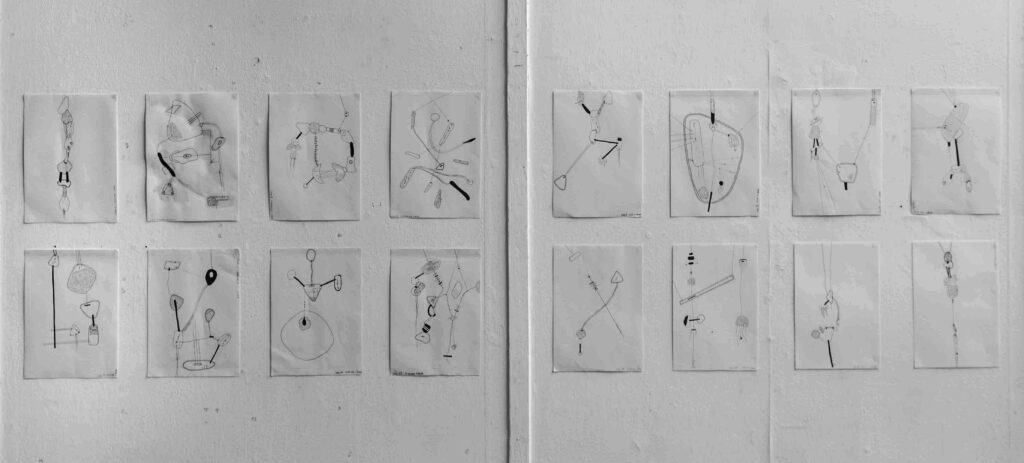
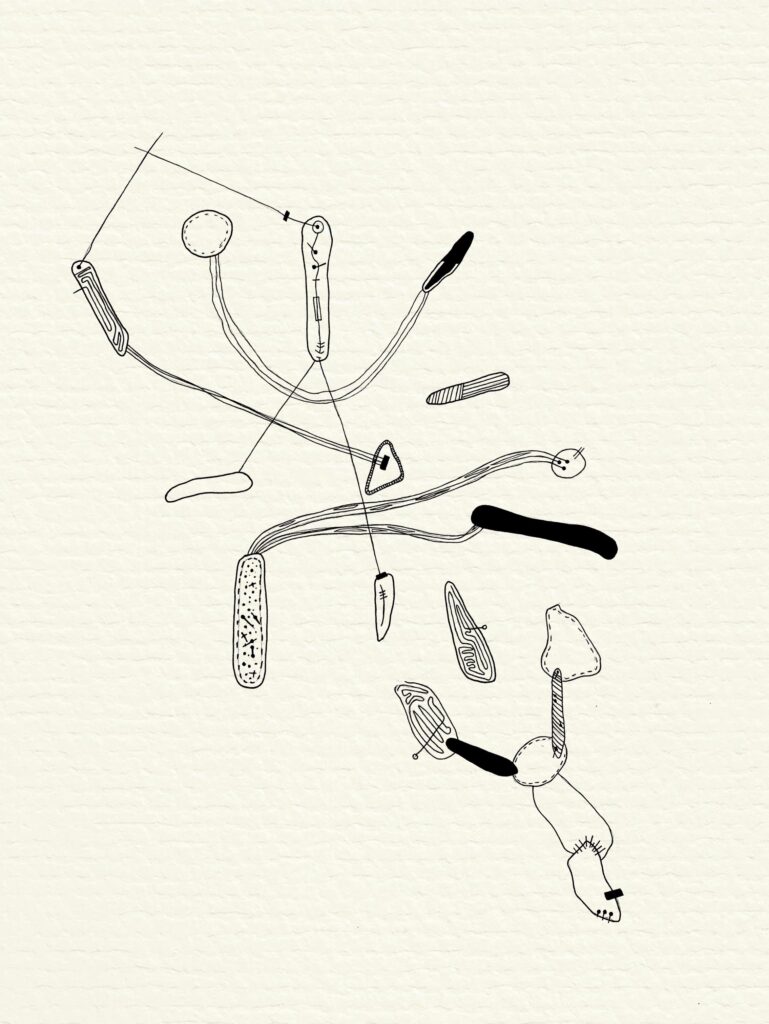
October 2019 - Arrival
The first two weeks of quarantine in a country I am completely foreign to, I find myself drawing again – perhaps as a way to establish familiarity. What I seem to be drawing is homelike, figures of bodies. Well at least that is what I am telling myself they are for now. I have committed to drawing one every day.
I only know the view from my balcony, I must be lucky to have a balcony. I haven’t met any of my classmates in person yet, there are only just voices and faces on a screen - but I guess that’s okay.
Back to the drawings, I am trying to reimagine what a body could look like visually if it was not given something to contain it. I wonder if I am thinking this because I am contained right now.
November 2019 - Syndrome
There has been much talk of Baudrillard [Jean Baudrillard, French sociologist] and some other people whose theories I do not know of.
I started feeling as if I should have read more (in life, in general) but then I also started thinking that I have read Ngugi [Ngũgĩ wa Thiong’o, Kenyan writer] and Appiah [Kwame Anthony Appiah, British-Ghanian philosopher] and this is “the West” with all its westernly references, so.…
Language is a strange thing in academia - instead of making things simple so they can be understood, it does the opposite. There are so many things that are made more complicated for whatsoever reason. I am also halfway through The Wretched of the Earth [by Franz Fanon] and I think this is as far as I will go.

I guess what I was beginning to feel was imposter syndrome, because there is so much art talk. But also art is about life and interest and I just have to remember that and focus on what that means to me.
I got the tutors I wanted and I am very happy about that.
There is a lockdown but the studios remain open which I am happy about. I shot a video in there which is mildly entertaining.
There are few of us that are here and even fewer that go to the studio.
I have not yet decided if this is a good or bad thing.
January 2020 - A confluence
After many weeks in panic trying to write a project proposal draft that would make me seem smarter (to whom, for what I do not know), I ended up deciding on telling a story. Well, three to be exact - stories of women that have both existed and are birthed from my imagination. Of home: Musoma, Moshi, Dar es Salaam. I only know what I know, and I think it is about time to learn that is enough.
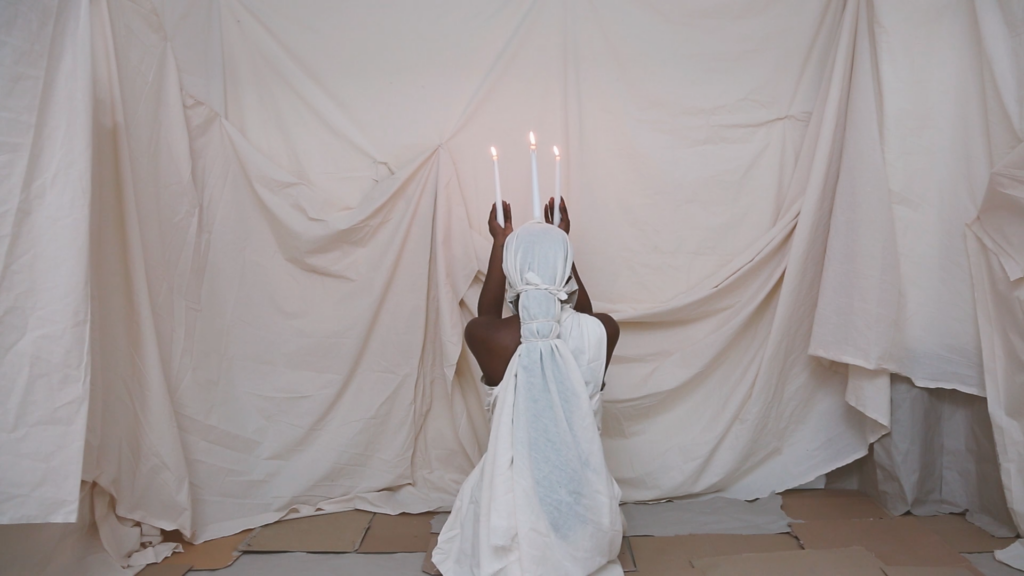
March 2020 - A dissertation
My mother reads the first draft of my text and sends me a WhatsApp message and it makes me cry. It is officially the longest I have gone without seeing her.
Jade (my dissertation tutor) said that we should aim for a distinction. I trust her and she has given me so many references, I wonder how she keeps all that information in her head!
The last part of my dissertation is done, the part that includes the 147 names of the people who donated to me being here. The part that also has nothing to do with what I have actually been asked for, lol.
April 2020 - Adobe
Learning Adobe After Effects:
- Must learn animation
- Oh god, I hate this program
- Deadline coming, must persevere
May 2020 - Annotations
- I hate annotations.
- I also hate the Red List. I won’t be able to go home in June, but maybe it will be over by the time it’s graduation.
Reading all this again I have had many personal revelations about art education, access and visibility. I have felt the incredible amount of privilege that is required to be able to study for a post-graduate art degree, something I would not have been able to do without the support of my beautiful community. Art education is unfortunately extremely expensive and it is very disappointing seeing how many people did not have access to studios and resources while participating in a mostly online course with no consideration from their institutions in regards to fees and experience.
There are many things I could say about the mishandling of educational experiences in the past two years, but I am personally grateful that despite the oddity of situations, I was able to make friends and have incredible guidance through my course. My family and friends were not able to come to my graduation, because of the travel complications that came with Covid - but I was still able to have one.
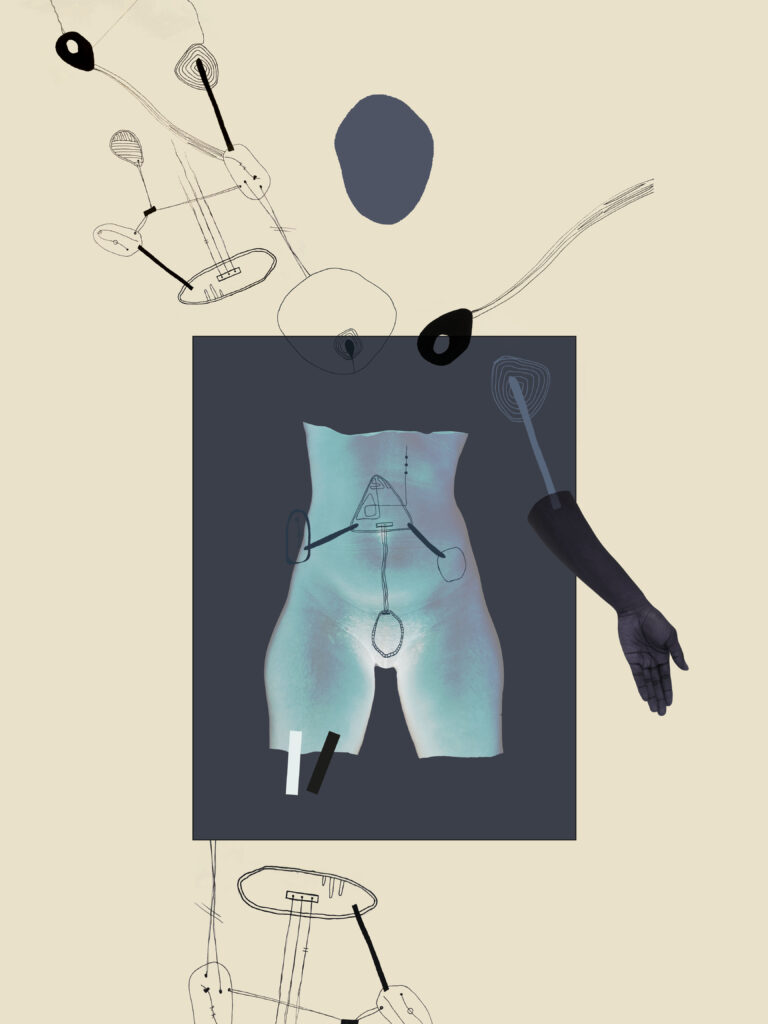
My dissertation finally, was centred around embodiment and reincarnation through art practice, referencing specifically the possession trance rituals of Southern and Central Arica. However intimidating it seemed to choose a topic so foreign to my examiners, it was rewarding knowing that I did not have to compromise my interests or my narrative and was still able to excel academically. The artworks that were made alongside it were an ode to women in my family who suffered as a result of their female bodies and through the work I bring them back to life, through characters that have interventions through poetry, performance and objects. Through working intuitively and sincerely, I was reminded that art can be both intimate and urgent; personal and communal and the process and care that goes into the making of the art is almost always more important than the output.
Click here to see Confluence of Parts – dissertation project
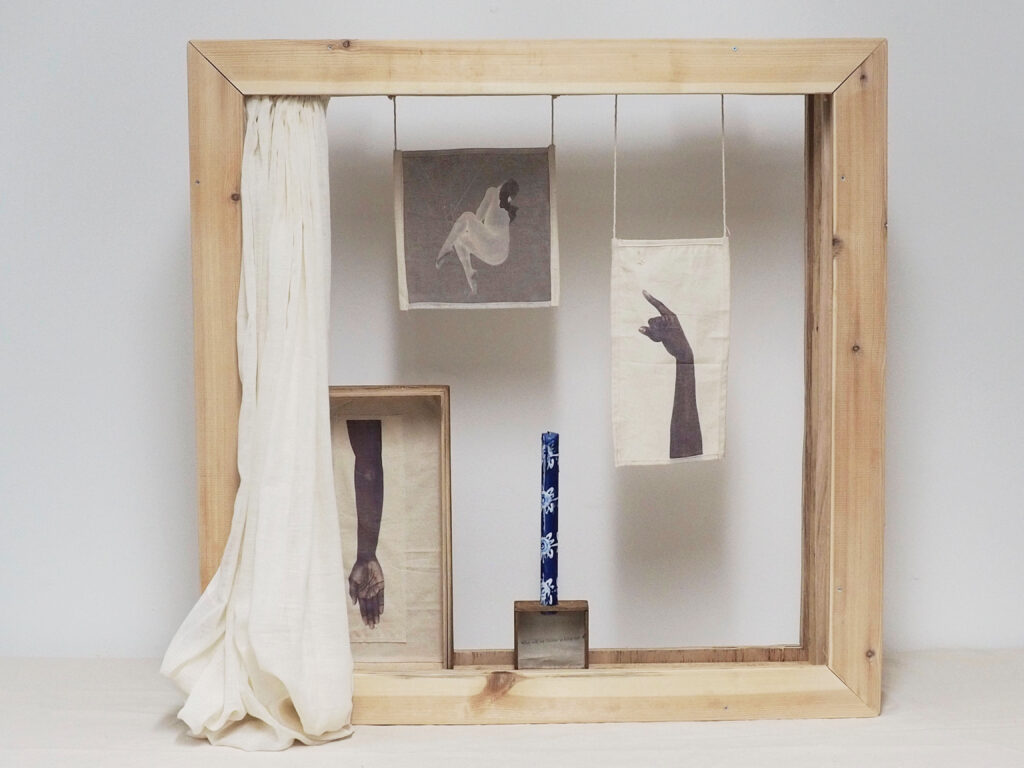
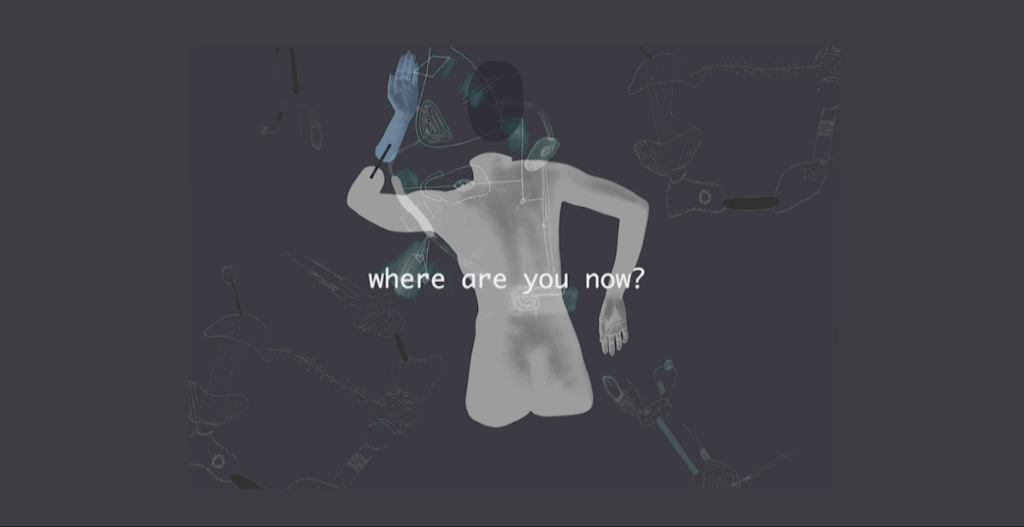
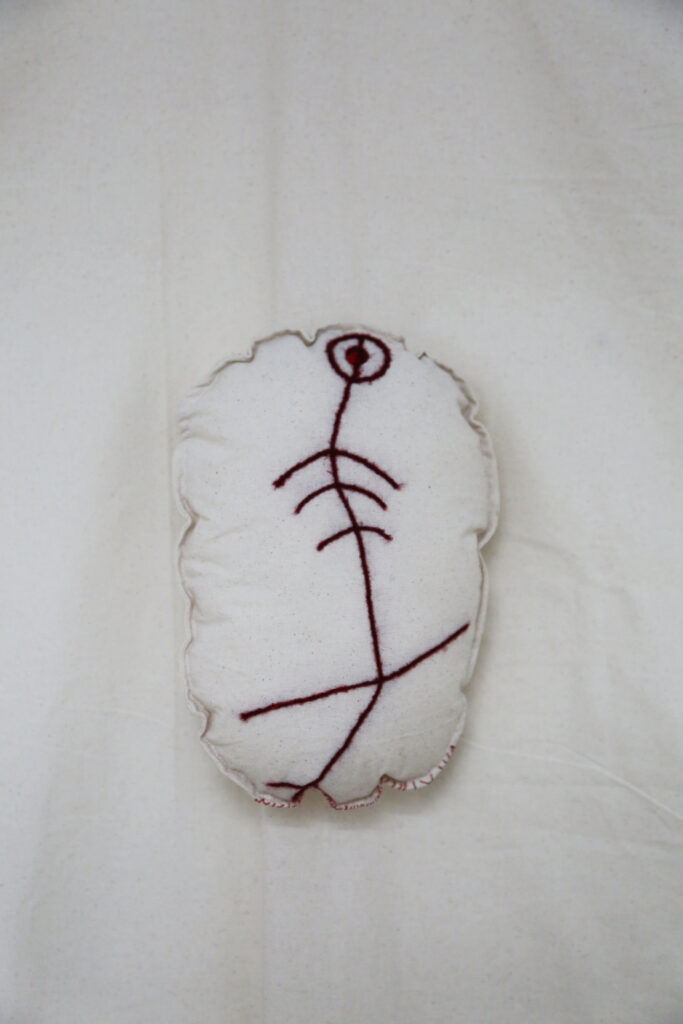
As a creator, having space to experiment, play and have access to resources is essential; at the core, this is what I and supposedly many others seek when embarking on post-graduate art studies. As we move forward with more positivity with in-person teaching that has started again, while many others found ways of experimenting with alternative ways of learning, I hope we find ways to champion our time to experiment. Especially as an African artist in a contemporary setting that seems to push me towards a certain narrative - pandemic or not, may we continue playing and finding ways to stay true to ourselves - confident in knowing that what we know is enough.
About the Artist
Valerie Asiimwe Amani is a Tanzanian artist, writer and curator - working across mediums of text, textile, moving image and digital collage. Her practice interrogates daily translations of body erotics, language, place and memory; creating intuitive interventions that aim to create bridges between the physical and spiritual. She is the recipient of the 2021 Vivien Leigh Prize, and has been shortlisted for the 2022 Henrike Grohs Award and the Dentons Art Prize. She is currently based in London where she is the Project Curator for art mental health charity Hospital Rooms, while maintaining her studio practice.
